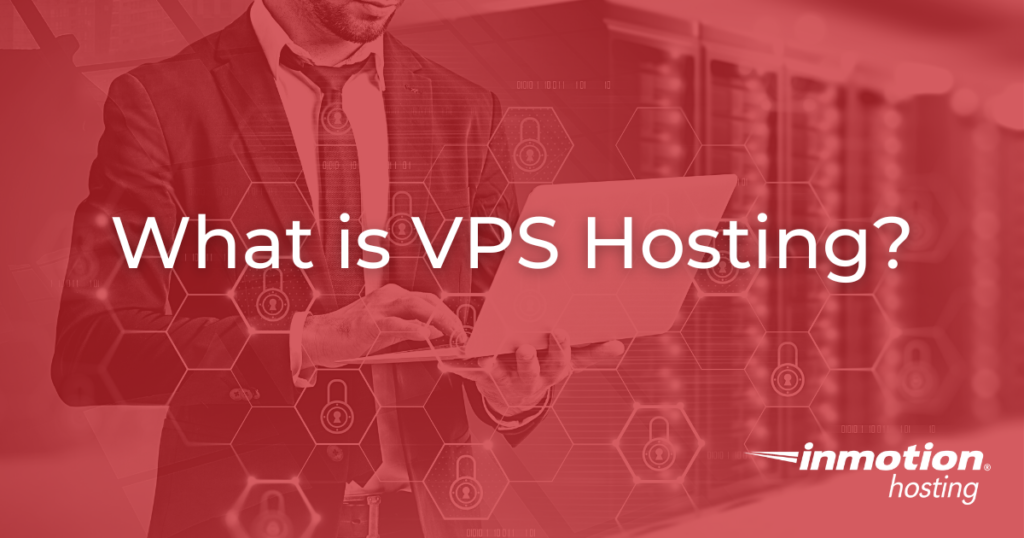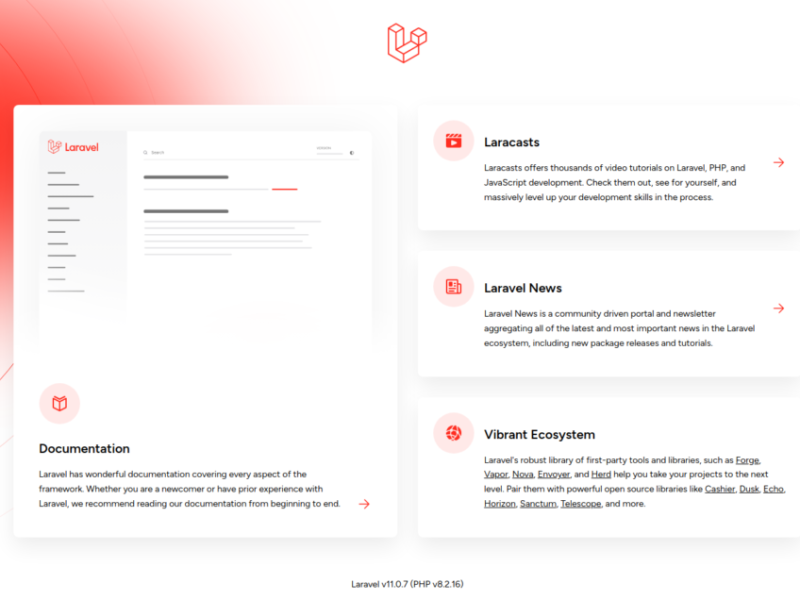
A VPS (virtual private server) is a type of web hosting package that divides a physical server into “virtual” parts, each of which simulates a separate server. This gives you compute resources for more control, better security, and overall faster performance.
A VPS gives you elevated access to your own disk, memory, CPU cores, and software configuration. It’s like having your own dedicated computer in a data center, but at a fraction of the cost.
How does VPS work?
VPS hosting works by taking an entire dedicated server (or cloud hosting network), splitting it into individual “nodes” and running discrete “containers” on those nodes. This is how a VPS gives you more power and control, but at a much more affordable price than dedicated hosting.

Does this VPS hosting mean “shared”? No. With a VPS, you don’t share resources with other users on the same server.
You can host multiple websites on a VPS with little sacrifice in speed and performance. It’s ideal for managing multiple websites, or even providing your own hosting service as a reseller.
Do you need VPS hosting?
If you notice that your website is performing slowly, or you’re maxing out your shared hosting account, then you probably need VPS-level hosting.
Entry-level VPS plans provide an instant performance boost and aren’t much more expensive than some of the better shared hosting plans on the market.
How do I know when it’s time to upgrade?
If you’re wondering when it’s time to upgrade, a stress test can provide you with concrete benchmarks to verify whether you’ll be able to process requests on time. This simulates a heavy load on your server to see how it responds and recovers. See the following guide for more information.
Hosting comparison chart
| Options | Shared hosting | VPS hosting |
|---|---|---|
| Range of hundreds | $2.49-$19.99/month | $19.99-$146.99/month |
| Custom server software | No | Yes |
| Operating system settings | No | Yes |
| experience level | beginner | The previous one |
| Root Access | No | Yes |
| Dedicated IP address | additional purchase | included |
For more details, see our full guide to Shared Hosting vs VPS Hosting how do i choose
VPS and cloud hosting
VPS hosting and “cloud hosting” are often associated terms. However, not all VPS hosting is cloud-based.
Cloud hosting refers to virtual servers hosted in a cluster (an array of network servers that share data). Because the server load is distributed across a huge network of computers, there is no downtime.
While some VPS containers are still hosted on a single bare metal server, you’ll see more and more distributed in the cloud.
Types of VPS Hosting
Managed VPS Hosting refers to a VPS that comes pre-loaded with a control panel and critical software already installed.
Most hosting companies offer additional management services to these hosting stacks, so even non-experts can enjoy the benefits of private hosting.
Unmanaged VPS Hosting is generally cheaper than managed because you get a minimal package of hosting services. You get an operating system and a text-based terminal, that’s it. For some users, this is a good way to save money and enjoy more freedom. But for most users, the managed approach is worth the extra cost.
For more information, see our article on managed VPS or cloud server hosting.
How to manage your VPS
However, moving to a VPS comes with additional responsibilities. Even a managed VPS is not fully managed. You maintain control in several critical areas:
- What software do you want to add and how often should you update it?
- How to manage sub-accounts (such as additional cPanel users) and how to allocate resources.
- Security and safety of root level access keys and passwords.
Your hosting company can help you set up the right protocols, but most of the day-to-day maintenance is up to you.
VPS FAQ
Is VPS Hosting Worth It?
Every website will have different needs. With enough optimization, an average site with about 25-50 concurrent visitors can run well on shared hosting. However, when your site grows to hundreds or even thousands of visitors at a time, VPS becomes a necessary expense.
Is VPS better than shared hosting?
On balance, VPS provides the perfect middle ground between entry-level shared hosting and the ultimate power of dedicated hosting.
How many websites can I host on a VPS?
You can host virtually unlimited websites on a VPS platform. You are limited only by the disk space, memory and CPU power of your container.
If you need more bandwidth, disk space, or CPU, your container can be upgraded on the fly with no downtime.
How much does VPS hosting cost?
VPS hosting is a larger server unit, so it’s not much more expensive than shared hosting. In general, you can pay anywhere from 15 to several hundred per month or more than shared hosting – depending on the VPS package you need.
Given the immediate performance boost, a VPS is easily worth the extra cost.
How much speed do you get with VPS?
Bandwidth and data transfer in a VPS can range from a few terabytes to unlimited. Just make sure you buy a plan that meets your expected bandwidth. But, there is no need to worry if you need more bandwidth in the future because VPS is easy Scalable. This means that additional resources can be quickly allocated to server upgrades as needed.
WordPress Hosting VS VPS
You will often find VPS hosting compared to WordPress hosting. What is the difference?
WordPress hosting refers to any hosting plan that is optimized for the WordPress content management system (CMS).
These servers can be shared or private, but either way, you’ll likely see improved web server caching, PHP tuning, and MySQL optimization.
If you run a WordPress site, a WordPress VPS gives you freedom, virtual private hosting and an optimized server stack for your website.
You now know everything there is to know about VPS hosting. If you have any questions or comments, feel free to drop them below.



